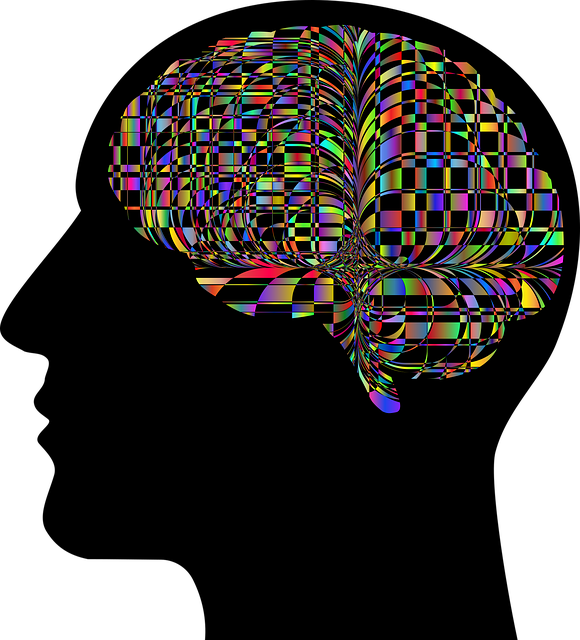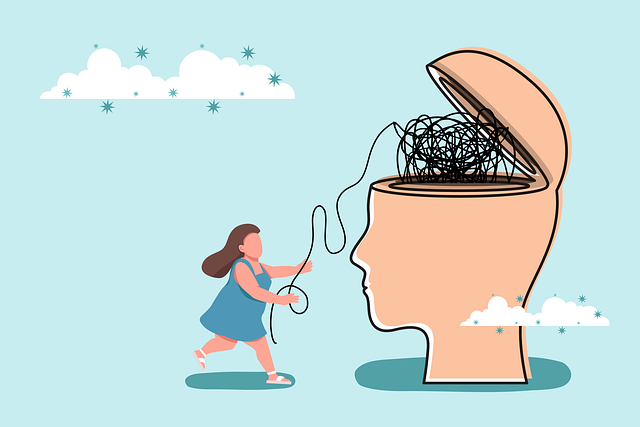Adolescent mental health is a complex field focusing on teen struggles with identity, academics, and social dynamics, leading to anxiety, depression, or stress disorders. Self-care practices like journaling and meditation are crucial tools. Cognitive Behavioral Therapy (CBT) provides effective coping mechanisms for long-term mental health. Personalized self-care strategies, therapy, mindfulness, and healthy habits are vital for teen wellness. Structured therapy, physical activity, balanced nutrition, and sleep form the foundation of a robust routine. Evidence-based therapy with culturally competent therapists addresses unique challenges like peer pressure and identity formation. Peer connections and community engagement enhance emotional well-being through belonging and support networks.
Mental wellness is a cornerstone of overall health, especially during adolescence. This critical period is marked by significant cognitive, emotional, and social development, making self-care not just beneficial but essential. Understanding the unique mental health needs of adolescents and implementing tailored self-care strategies are key to fostering resilience. From identifying personalized practices to integrating healthy habits into daily routines, this article explores effective methods to support adolescent and teen mental wellness, often requiring professional guidance and community connection.
- Understanding Adolescent Mental Health and Self-Care Needs
- Identifying Individualized Self-Care Strategies for Teens
- Incorporating Healthy Habits into Daily Routines
- The Role of Professional Support in Building Resilience
- Encouraging Peer Connection and Community Engagement
Understanding Adolescent Mental Health and Self-Care Needs

The mental health landscape for adolescents is a complex and evolving terrain. As teens navigate turbulent life transitions, academic pressures, social dynamics, and identity formation, they often face unique challenges that can impact their well-being. Understanding adolescent mental health involves recognizing that this period is crucial for forming healthy coping mechanisms and building resilience. Many teens struggle with issues such as anxiety, depression, and stress-related disorders, which, if left unaddressed, can have long-lasting effects on their overall development.
Self-care becomes an indispensable tool in supporting adolescent mental wellness. Encouraging self-awareness exercises, like journaling or mindful meditation, can help teens process their emotions and gain valuable insights into their thoughts. Additionally, promoting confidence-boosting activities tailored to their interests can foster a positive self-image and resilience. By integrating therapy options specifically designed for adolescent teens, such as cognitive-behavioral therapy (CBT), professionals can equip them with the necessary skills to navigate mental health challenges effectively.
Identifying Individualized Self-Care Strategies for Teens

Identifying Individualized Self-Care Strategies for Teens is a crucial step in fostering their mental wellness. Adolescent and teen years are often characterized by intense emotional shifts, academic pressures, and social dynamics that can lead to stress, anxiety, or even burnout. Therefore, it’s essential to tailor self-care routines that resonate with each teenager’s unique needs and preferences.
Therapy for adolescent teens plays a pivotal role in this process, offering safe spaces for them to express their feelings, gain insights into their emotions, and learn coping mechanisms. Incorporating confidence-boosting activities, such as journaling or creative pursuits, can empower teens to navigate challenges with resilience. Additionally, mindfulness meditation techniques have been proven effective in reducing stress and improving overall mental wellness. By integrating these strategies into their daily lives, teens can build a robust foundation for managing stress, preventing burnout, and cultivating lasting confidence.
Incorporating Healthy Habits into Daily Routines

Incorporating healthy habits into daily routines is a crucial step for adolescent and teen mental wellness. Therapy for this age group often emphasizes the importance of structure and consistency, making it easier to integrate activities that promote emotional intelligence and overall well-being. Simple yet effective practices like regular exercise, balanced nutrition, and adequate sleep form the foundation of a robust self-care routine. These habits not only support mental health but also enhance resilience, helping teens navigate life’s challenges with greater ease.
Mental Health Policy Analysis and Advocacy plays a significant role in creating environments that encourage such routines. Crisis Intervention Guidance from supportive systems allows adolescents to explore and adopt strategies tailored to their unique needs. By fostering emotional intelligence, teens gain the skills needed to manage stress, regulate emotions, and build positive relationships—all integral components of a holistic mental wellness self-care routine.
The Role of Professional Support in Building Resilience

Seeking professional support is a vital step in building resilience and fostering mental wellness for adolescent teens. Therapy tailored to this age group can provide a safe space for young individuals to explore their thoughts, feelings, and behaviors, helping them develop effective coping strategies. Through evidence-based practices, therapists equipped with healthcare provider cultural competency training can address unique challenges faced by adolescents, such as peer pressure, academic stress, and identity formation.
Self-awareness exercises and mind over matter principles are often integrated into these therapeutic sessions. By encouraging open communication, therapists guide teens towards understanding their emotional triggers and nurturing a positive self-image. This support system plays a crucial role in building resilience, enabling adolescents to navigate life’s challenges with increased adaptability and a sense of control over their mental health.
Encouraging Peer Connection and Community Engagement

Encouraging peer connection and community engagement is a vital component of mental wellness self-care for adolescent teens. Social support networks can significantly enhance emotional well-being, offering a sense of belonging and validation. Adolescents and teens can benefit from joining clubs, sports teams, or community groups that align with their interests, providing opportunities to forge meaningful connections and develop empathy building strategies. These interactions foster a positive self-image and self-esteem improvement by allowing individuals to express themselves authentically within supportive environments.
Community engagement also offers a platform for adolescents to contribute and make a difference, boosting their sense of purpose and belonging. Whether volunteering, participating in local events, or engaging in peer-led initiatives, these activities promote emotional well-being promotion techniques that empower teens to connect with others on deeper levels, fostering resilience and a stronger support system as they navigate the challenges of adolescence.
Developing a robust mental wellness self-care routine is essential for adolescent and teen well-being. By understanding the unique mental health needs of this demographic, parents and caregivers can identify personalized strategies to enhance their resilience. Incorporating healthy habits into daily routines, seeking professional support when needed, and fostering peer connections all play vital roles in fostering a supportive environment for teens. Remember, therapy for adolescent teens can be transformative, offering valuable tools to navigate life’s challenges and promote long-term mental wellness.














